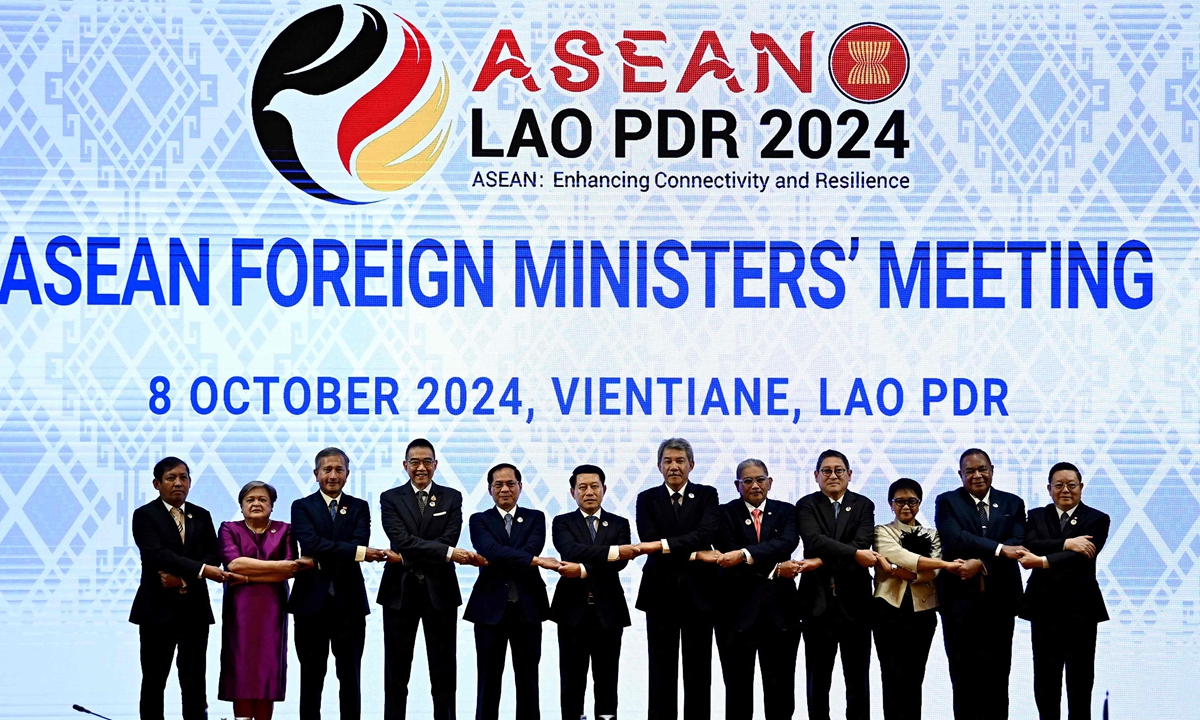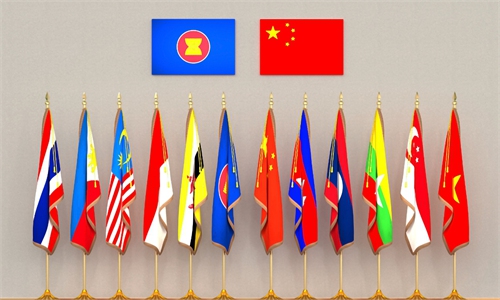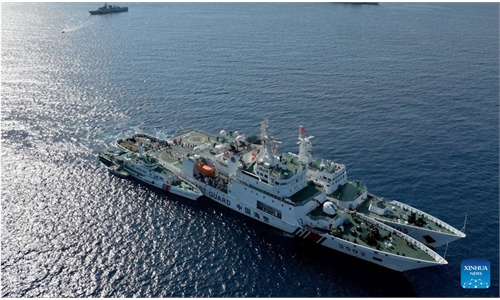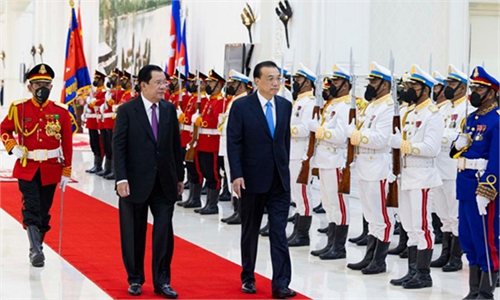ASEAN summits to eye connectivity, defying external disruption: expert
China looks forward to working with ASEAN, regional countries to build consensus: FM

Foreign ministers of 10 ASEAN members and East Timor, observer of the organization, as well as ASEAN Secretary General Kao Kim Hourn pose for a family photo during the 57th ASEAN Foreign Ministers Plenary Meeting session in Vientiane, Laos on October 8, 2024. Photo: VCG
Chinese Premier Li Qiang will attend the 27th China-ASEAN Summit, the 27th ASEAN Plus Three Summit and the 19th East Asia Summit to be held in Vientiane, Laos from October 9 to 12, and pay an official visit to Laos.Li's visit is at the invitation of Prime Minister Sonexay Siphandone of the Lao People's Democratic Republic, the current ASEAN chair, Chinese foreign ministry spokesperson Mao Ning announced on Tuesday. Li will also pay an official visit to Vietnam from October 12 to 14, at the invitation of Prime Minister Pham Minh Chinh of Vietnam.
The 44th and 45th ASEAN Summits and Related Summits will convene in Vientiane, Lao from October 8 to11, according to official information.
The theme for Lao PDR's ASEAN Chairmanship in 2024 is "ASEAN: Enhancing Connectivity and Resilience." Enhancing connectivity and resilience is of utmost importance to ensure ASEAN collective efforts in the strengthening of the ASEAN Community to seize opportunities and address present and emerging challenges effectively, according to ASEAN website.
At a regular press conference on Tuesday, Chinese Foreign Ministry spokesperson Mao said that China looks forward to working with ASEAN and other regional countries to build consensus, deepen mutual trust, strengthen cooperation, and inject new impetus into peace, stability, development and prosperity in the region and the world at large, according to the Xinhua News Agency.
Chinese experts noted that despite the regional challenges ASEAN is facing right now, such as the South China Sea dispute, this year's ASEAN summits will first prioritize the region's development.
ASEAN is keen to seize the opportunity for technological innovation to advance its digitalization efforts. The group hopes that this year's summits will foster cooperation with countries such as China and Japan, Peng Nian, director of the Hong Kong Research Center for Asian Studies, told the Global Times on Tuesday.
Connectivity is another priority, as enhanced connectivity with neighboring countries like China, Japan, and South Korea can stimulate trade and attract greater investment to the region, Peng noted.
Philippine President Ferdinand Marcos Jr. will reportedly assert the Philippines' sovereignty over its territorial waters at the ASEAN summits, the Department of Foreign Affairs of Philippines said last week, according to Manila Times.
Marcos is likely to stage a monodrama if he takes advantage of the event to hype the South China Sea issue, as regional countries are more prone to cool down the situation instead of adding fuel to the fire, Chen Xiangmiao, director of the World Navy Research Center at the National Institute for South China Sea Studies, told the Global Times.
Moreover, this year's ASEAN summits emphasize cooperation and development among its member states. If the Philippines attempts to hype the South China Sea issue, it could dilute other important topics, said Chen, noting that such a move may not be well received by other regional countries.
In June, Malaysian Prime Minister Anwar Ibrahim called for diplomatic engagement to resolve the South China Sea disputes, stressing that interference from external parties will only make things worse, according to Xinhua News Agency.
Disruptive voices
Canadian Prime Minister Justin Trudeau has an opening during this week's summits with regional leaders in Laos to step up Canada's efforts to help Southeast Asian countries facing so-called "escalating threats from China," Canadian media CBC quoted experts as saying.
Japan's new Prime Minister Shigeru Ishiba will also hold talks this week on the sidelines of the ASEAN summit, a top official told the AFP. Ishiba has once raised the notion of an "Asian NATO."
These voices from forces outside the region want to instigate and hype up problems and interrupt prosperity and development in Southeast Asia, a region built on win-win and pragmatic cooperation between China and regional countries, observers said, noting ASEAN members won't be distracted by these disruptions.
On October 5, Indonesia's largest English-language newspaper, The Jakarta Post, published an editorial entitled "No to Asia's NATO," directly advising Ishiba to "refrain from promoting his grand idea to establish an Asian version of NATO in order to avoid self-humiliation."
ASEAN countries are seeking cooperation with various nations; however, the bloc is increasingly wary of extraterritorial powers that may incite conflicts and introduce disruptive ideas. Such notions not only undermine ASEAN's centrality but also pose challenges to Southeast Asia's geopolitical security, Chen noted.
As ASEAN countries are also watching the rising tension in the Middle East and the ongoing Russia-Ukraine conflict, the summit provides an opportunity to discuss managing crisis. Southeast Asia, currently a region of peace, is also worried that if the US triggers conflict in this region, it could become the second Middle East, said Chen.




